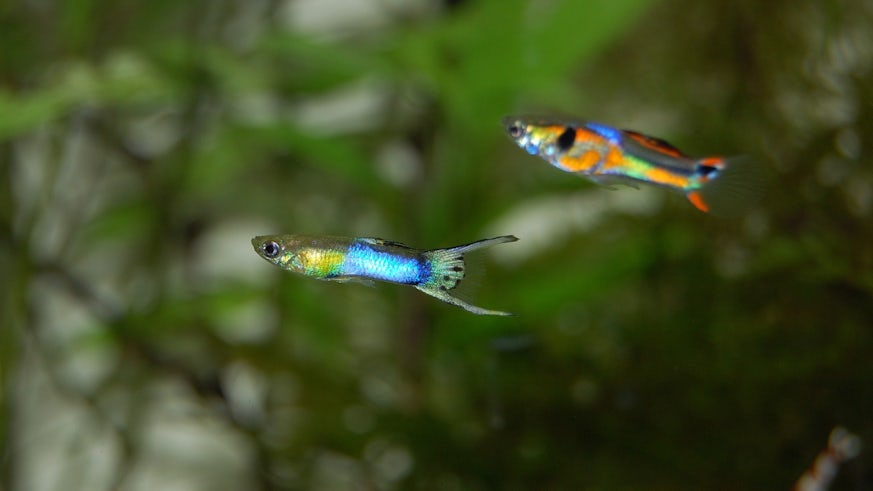The impact of water flow conditions on the transmission of parasites in freshwater organisms
13 March 2019

Researchers from Cardiff University studied the effects of different water flow conditions on the transmission of parasites in freshwater organisms.
This research was conducted by an interdisciplinary group composed of Prof Jo Cable, School of Biosciences, Dr Catherine Wilson, School of Engineering, both affiliated members of the Water Research Institute, and former Cardiff University PhD students Drs Mike Reynolds and Fran Hockley.

For most biologists, riverine fish are studied either in the field or in static flow tanks. In collaboration with engineers, we can use indoor ‘artificial streams’ to assess exactly how fish swimming behaviour is altered by precisely monitored flow conditions.
Prof Jo Cable explains: "In interrupted flow, fish suffer a ‘double whammy’.
"Under continuous flow conditions, fish tend to group together (shoal) to reduce the energetic costs of swimming. This increases disease risk. In no flow conditions, fish tend to rest on the substrate at night. However, when infected, fish become restless and move amongst other fish increasing disease risk.
"So, overall parasite transmission was greatest amongst fish in interrupted flow, that are subjected to both continuous and no flow conditions."
For more information about this study, please check the full publication in Hydrobiologia.


